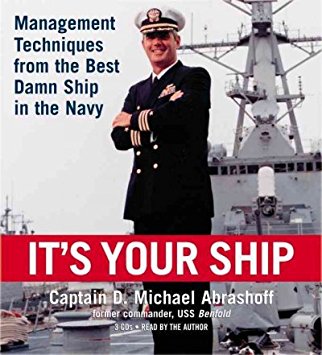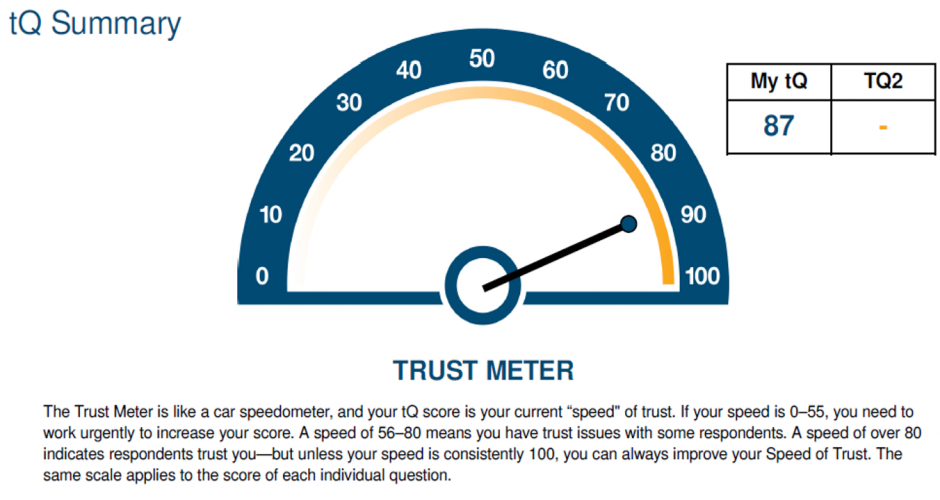Commuting is my time (apart from a handful of scheduled phone calls), predominantly podcasts, occasionally an audiobook. This week my commute has been filled with “It’s Your Ship: Management Techniques from the Best Damn Ship in the Navy,” a loan from one of our Trustees. First published in 2006.
Captain Abrashoff reflects on the management and leadership techniques that helped his ship, the Benfold, become “the best damn ship in the Navy.” If somewhat self-indulgent it is full of transferable advice, particularly to traditional and hierarchical organisations, as many schools are. Though the staffing profile is very different. On management, communicating purpose and meaning (and listening aggressively) and organisational efficiency were often cited. Topically, retention and development of staff feature highly and apply to education. Counter-balanced by leadership perspectives of personal integrity, taking on the perspective of your staff, trusting others to make decisions (both right and wrong) and encouraged descent. Perhaps, given the military context, the promotion of encouraged decent was most interesting. Of course, the close proximity of the staff and life-death working conditions somewhat hard to transpose to education.
Management
I chose my line in the sand. Whenever the consequences of a decision had the potential to kill or injure someone, waste tax-payers’ money, or damage the ship, I had to be consulted.
This thinking could be easily translated. Whenever the consequences of a decision has the potential to leave a staff member or child at risk, waste tax-payers’ money, or damage the school, consulted me. Otherwise, “make the best decision.”
Abrashoff frequent use of the phrase “combat-ready” rang true every other minute, concluded many of the anecdotes. Even I knew what Abrashoff’s single focus as Captain was on Benfold, and I never step foot on that ship.
He spoke a lot about the importance of communication and lack of it.
Change frightens workers, and their fears thrive in silence.
He also talked alot about developing his staff and the savings of such an investment.
I was determined to turn the ship into an institution of continual learning.
Leadership
Some observations seen simple and yet required skillful execution.
The key to being a good leader is ongoing counseling and consistent honesty.
The art of leadership lies in simple things – commonsense actions that ensure high morale and increase the odds of winning.
…optimism and pessimism are equally infectious.
See the ship through the crew’s eyes.
There was significant commentary on empowerment of staff. Abrashoff is clear, any institutional leader can not achieve success on his or her own. Empowering others, whatever their position, “talent know no rank,”and “good ideas are where you find them,” “betting on the people that think for themselves” and never “pitting dog against dog” are important moral ingredients.
…the crew was authorized to make their own decisions. Even if the decisions were wrong, I would stand by them. Hopefully, they would learn from their mistakes. And the more responsibility they were given, the more they learned.
Show me an organization in which employees take ownership, and I will show you one that beats its competitors.
I am absolutely convinced that with good leadership, freedom does not weaken discipline – it strengthens it.
There was a fare amount of commentary on managing up and ethical leadership.
If what I’m about to do appeared on the front page of the Washington Post tomorrow, would I be proud or embarrassed?
If they see you give up on someone, they understand instantly that there’s no room for redemption in this outfit, and they could be next to go. If they see you intervene to help someone who is worth your effort, they will be reassured. Though the process is tedious and time-consuming, you will benefit if people feel more secure, are more willing to take risks, and have a positive attitude about the organization.
There was an interesting section on Abrashoff management of himself. Having pointed our that “optimism and pessimism are equally infectious,” he outlined how he minimised his impact on his “dark-days.” I point for self reference for any leader I would think.
I decided to minimize interaction with my crew on days when the (my) dark side was evident, so that at least I would do no harm.
Worth your time, especially if you are commuting.
Aug 29th 2018
Fast forward 12 months.You can do that when you record your thinking.
Sept 2017, I wrote a review of Captain Abrashoff’s “the best damn ship in the Navy.” Here started my transfer from investigation to action, with reference to deepening trust within our school. Particularly around the leadership team. I am thinking about trust, as tomorrow our leadership team are getting together for our planning day and I expect I will be saying “if it doesn’t cost money, or damage the ship / school, ‘make the best decision.’ One of the most important adaptations to my leadership has been trusting my team more.


